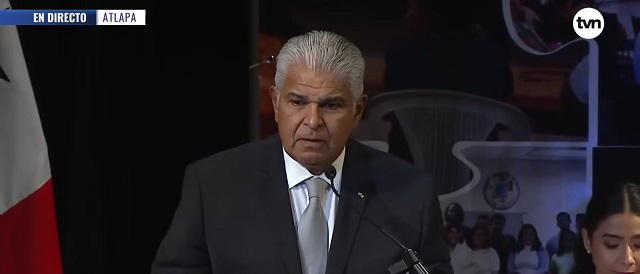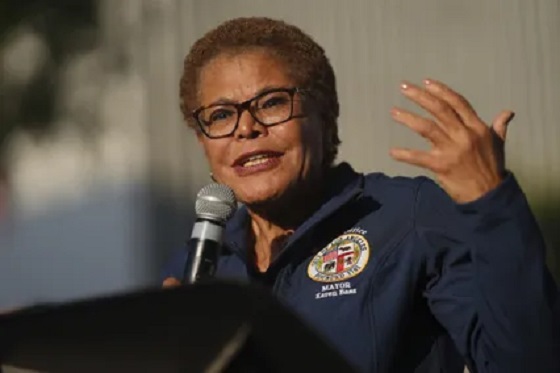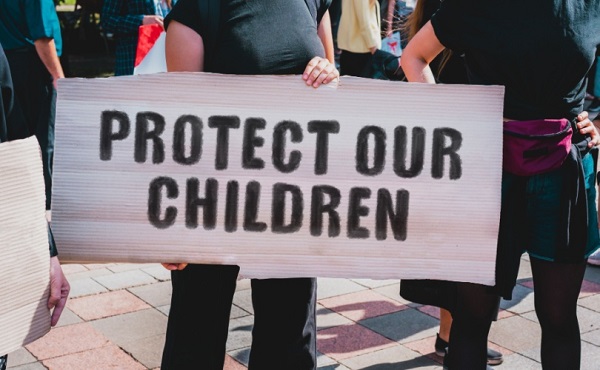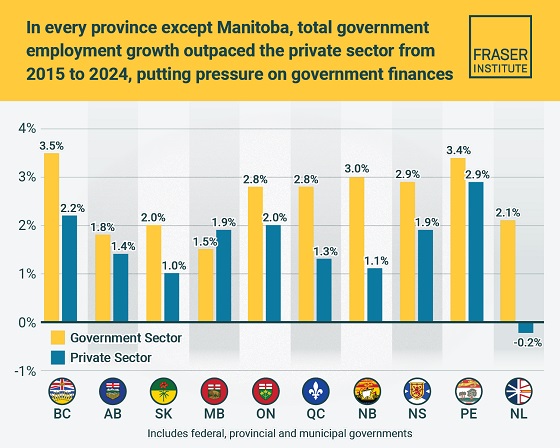illegal immigration
Panama’s Incoming President Wants To Shut Down His Country’s Most Treacherous Route For Migrants — But Will It Work?

 From the Daily Caller News Foundation
From the Daily Caller News Foundation
Panama’s new president-elect is pledging to close a key corridor used by hundreds of thousands of migrants en route to the U.S., but experts and Panamanians aren’t so sure it can be done.
President-elect Jose Raul Mulino handily won the Panamanian presidential election earlier in May, riding a wave of voter discontent over the country’s slow economic growth and an endorsement from a popular former president. The 64-year-old lawyer also campaigned on a pledge to end the illegal immigration that runs through the tiny Central American nation’s Darien gap — but some question the feasibility of that pledge, given the vastness of the jungle, the cartels that populate it and the sheer amount of migrants flowing through it.
“While President Mulino’s promise to close the Darien Gap to migrants appears to be made in good faith, it’s unclear how he could ever actually deliver,” Matt O’Brien, director of investigations for the Immigration Reform Law Institute, said to the Daily Caller News Foundation. “The region consists of thousands of square miles of jungle that are virtually impossible to police.”
“And the gap itself is already home to massive migrant assistance operations that are funded by politically-potent, anti-borders groups from all over the world,” O’Brien added. “None of these organizations are likely to close up shop and go home without a fight.”
The number of illegal immigrants crossing the Darien Gap is incredibly massive — and rising. More than half a million migrants passed through the region in 2023, double the nearly 250,000 that had crossed the year before, according to the Council of Foreign Relations.
“The border of the United States, instead of being in Texas, moved to Panama,” Mulino said on the campaign trail. “We’re going to close the Darien and we’re going to repatriate all these people,” referring to a vast jungle region across Panama and Colombia known as the Darien Gap.
The pledge has received notable coverage from American media, and the Secretary of State’s office made mention of anticipated cooperation on the issue shortly after Mulino’s election victory.
The Darien Gap, however, is roughly 40 miles wide and 100 miles long, with a combination of rainforests and mountains and virtually no government presence, according to the Guardian. Hiking through the region can take days.
The area is also under the de facto authority of drug-trafficking organizations such as the Revolutionary Armed Forces of Colombia (FARC) and the Gulf Clan paramilitary group, according to the Council on Foreign Relations. The groups are known to extort and sexually assault travelers who pass through the region.
The idea of closing off the Darien has long been regarded as too much of a burden to accomplish, given these factors.
“Panama closed their border,” Wisconsin GOP Rep. Tom Tiffany said in 2021 after a trip to the Darien Gap. “But they, in effect, can’t because of the incredible crush of migrants that are coming from all over the world.”
More recently, Juan Pappier, the Americas deputy director at Human Rights Watch, framed Mulino’s promise to close the Darien Gap as “virtually impossible.”
The majority of migrants crossing the Darien Gap are Venezuelan nationals, but people from Ecuador, Haiti and other African and Asian countries also utilize these routes to make it to the U.S. border.
Panamanians have made notice of the enormous flow of migrants crossing their country on a daily basis.
“It’s impossible to not run into a foreigner who is begging for money or puts their child in front of you to beg for money, or sell you chewing gum or candy,” Allan Baitel, a born-and-raised Panamanian citizen, told the DCNF. “We have a lot of individuals who are present on the streets at all times, 24 hours a day with signs asking for help.”
Baitel noted that the government is “doing its best” to mitigate disruptions to daily Panamanian life by getting the migrants off the street and moving them to the border of Costa Rica. While he acknowledged the difficulty in closing up the Darien Gap, he expressed optimism over Mulino’s background.
“It’s going to be very hard to close the gap, very difficult,” he said, noting that Colombia was unlikely to help in the effort. Colombia’s leftist president, Gustavo Petro, has long been hesitant to adopt measures to physically bar migrants from entering the jungle, claiming that a more humanitarian approach should be taken.
“Let me tell you that Mulino’s background is in security,” Baitel said. “He has preparation in having to deal with a lot of these issues, so he may have something up his sleeve.”
Currently, the Panamanian government’s policy has been to immediately bus incoming migrants to the Costa Rican border, allowing them to carry on in their U.S.-bound journey. In a recent radio interview, the incoming president said most would-be migrants would simply not even try to cross Panama once he begins deporting them.
“Because when we start to deport people here in an immediate deportation plan the interest for sneaking through Panama will decrease,” Mulino said in the radio interview. “I assure you they are going to say that going through Panama is not attractive because they are deporting you.”
For many Panamanian citizens, the crisis hasn’t made much of a personal impact on them since the vast majority of the migrants are quickly moving on and out of the country.
“We don’t see that many, no one wants to stay here. They want to get to the shining city on the hill,” said Surse Pierpoint, a third-generation Panamanian who spoke to the DCNF.
Pierpoint said that the topic of immigration doesn’t even crack the “top five” issues that matter to him at the moment. Like many other voters, Pierpoint cited the tough economic times the country has faced and he liked Mulino’s agenda for the private sector.
Panama, once the top performing economy in Latin America, has struggled with credit downgrades, slow economic growth, less foreign direct investment and the closing of a major copper mine. The president-elect campaigned on a pledge to bring life back into the private sector with a pro-market agenda.
As for closing the Darien Gap, Pierpoint has doubts: “I don’t know how he can do that frankly,” he said. “It sounds good, but I don’t see how it’s feasible in the short term.”
While so much attention has been focused on Mulino’s ability to close the migration routes himself, policy experts in Washington, D.C,. and locals in Panama alike also pointed the finger back at the Biden administration. The crisis taking place in this Latin American isthmus, they say, begins and ends at the White House.
“Panama president-elect Jose Mulino’s pledge to close the Darien Gap route that migrants are traversing on their way to the U.S. southern border demonstrates the far-reaching negative consequences of Pres. Biden’s immigration policies,” Eric Ruark, director of research at NumbersUSA, said to the DCNF. “This is a humanitarian crisis entirely of President’ Biden’s making, and Panama is just one of the countries dealing with the fallout.”
“All of this has to do with the United States,” Baitel added. “It will not cease until there’s a very drastic change in the United States.”
Crime
CBSA Bust Uncovers Mexican Cartel Network in Montreal High-Rise, Moving Hundreds Across Canada-U.S. Border

A court document cited by La Presse in prior reporting on the case.
The conviction targets Edgar Gonzalez de Paz, 37, a Mexican national identified in court evidence as a key organizer in a Montreal-based smuggling network that La Presse documented in March through numerous legal filings.
According to the Canada Border Services Agency, Gonzalez de Paz’s guilty plea acknowledges that he arranged a clandestine crossing for seven migrants on January 27–28, 2024, in exchange for money. He had earlier been arrested and charged with avoiding examination and returning to Canada without authorization.
Breaking the story in March, La Presse reported: “A Mexican criminal organization has established itself in Montreal, where it is making a fortune by illegally smuggling hundreds of migrants across the Canada-U.S. border. Thanks to the seizure of two accounting ledgers, Canadian authorities have gained unprecedented access to the group’s secrets, which they hope to dismantle in the coming months.”
La Presse said the Mexico-based organization ran crossings in both directions — Quebec to the United States and vice versa — through roughly ten collaborators, some family-linked, charging $5,000 to $6,000 per trip and generating at least $1 million in seven months.
The notebooks seized by CBSA listed clients, guarantors, recruiters in Mexico, and accomplices on the U.S. side. In one April 20, 2024 interception near the border, police stopped a vehicle registered to Gonzalez de Paz and, according to evidence cited by La Presse, identified him as one of the “main organizers,” operating without legal status from a René-Lévesque Boulevard condo that served as headquarters.
Seizures included cellphones, a black notebook, and cocaine. A roommate’s second notebook helped authorities tally about 200 migrants and more than $1 million in receipts.
“This type of criminal organization is ruthless and often threatens customers if they do not pay, or places them in a vulnerable situation,” a CBSA report filed as evidence stated, according to La Presse.
The Montreal-based organization first appeared on the radar in a rural community of about 400 inhabitants in the southern Montérégie region bordering New York State, La Presse reported, citing court documents.
On the U.S. side of the line, in the Swanton Sector (Vermont and adjoining northern New York and New Hampshire), authorities reported an exceptional surge in 2022–2023 — driven largely by Mexican nationals rerouting via Canada — foreshadowing the Mexican-cartel smuggling described in the CBSA case.
Gonzalez de Paz had entered Canada illegally in 2023, according to La Presse. When officers arrested him, CBSA agents seized 30 grams of cocaine, two cellphones, and a black notebook filled with handwritten notes. In his apartment, they found clothing by Balenciaga, a luxury brand whose T-shirts retail for roughly $1,000 each.
Investigators have linked this case to another incident at the same address involving a man named Mario Alberto Perez Gutierrez, a resident of the same condo as early as 2023.
Perez Gutierrez was accompanied by several men known to Canadian authorities for cocaine trafficking, receiving stolen goods, armed robbery, or loitering in the woods near the American border, according to a Montreal Police Service (SPVM) report filed as evidence.
The CBSA argued before the immigration tribunal that Gonzalez de Paz belonged to a group active in human and drug trafficking — “activities usually orchestrated by Mexican cartels.”
As The Bureau has previously reported, Justin Trudeau’s Liberal Cabinet was warned in 2016 that lifting visa requirements for Mexican visitors would “facilitate travel to Canada by Mexicans with criminal records,” potentially including “drug smugglers, human smugglers, recruiters, money launderers and foot soldiers.”
CBSA “serious-crime” flags tied to Mexican nationals rose sharply after the December 2016 visa change. Former CBSA officer Luc Sabourin, in a sworn affidavit cited by The Bureau, alleged that hundreds of cartel-linked operatives entered Canada following the visa lift.
The closure of Roxham Road in 2023 altered migrant flows and increased reliance on organized smugglers — a shift reflected in the ledger-mapped Montreal network and a spike in U.S. northern-border encounters.
The Bureau is a reader-supported publication.
To receive new posts and support my work, consider becoming a free or paid subscriber.
illegal immigration
Los Angeles declares a state of emergency over ICE deportations

Los Angeles County leaders have declared a state of emergency over Immigration and Customs Enforcement operations, a move that federal officials and conservative leaders are blasting as a political stunt that undermines the rule of law.
JUST IN: Los Angeles County declares a state of emergency in response to the ICE raids, will provide rent relief.
The LA County Board of Supervisors made the move as the Trump admin continues to ramp up the raids.
“The move allows the LA County Board of Supervisors to provide… pic.twitter.com/DqtvvfhWDu
— Collin Rugg (@CollinRugg) October 15, 2025
On Tuesday, the Los Angeles County Board of Supervisors approved a “Proclamation of Local Emergency for Federal Immigration Actions,” with only one supervisor, Kathryn Barger, voting no. The board claimed that ICE raids “created fear, disrupted neighborhoods, and destabilized families, workers, and businesses” across the region.
Supervisor Lindsey Horvath, who introduced the measure, said the declaration “ensures that the full weight of County government is aligned to support our immigrant communities who are being targeted by federal actions.” But critics say the move has nothing to do with public safety and everything to do with shielding criminal illegal aliens from deportation. “The only emergency is the one the residents of Los Angeles face after electing officials who give a middle finger to the law,” an ICE spokesperson told Fox News, adding that the agency is simply enforcing President Trump’s mandate to remove those in the country illegally — including violent offenders.
ICE spokesperson Emily Covington went further, saying, “Perhaps the board should ‘supervise’ funds to support law-abiding fire victims who still haven’t recovered instead of criminal illegal aliens seeking refuge in their sanctuary city. While they publicly fear-monger, I would be shocked if they didn’t agree with ICE removing a child rapist from their neighborhood.”
Attorney General Pam Bondi called the move “illegal” and accused Los Angeles County of aiding and abetting lawbreaking. “They don’t care about their citizens,” Bondi said on Fox News’ Hannity. “It’s hurting our citizens, and we’re going to keep fighting for the American people.” Chair Kathryn Barger — the lone dissenting vote — also warned that the county’s action could trigger federal consequences, noting that “the federal government has sole authority to enforce federal immigration law, and local governments cannot impede that authority.” She added that the county should instead push for “meaningful immigration reform that is fair, pragmatic, and creates legal pathways for those who contribute to our communities.”
The board’s declaration allows county departments to “mobilize resources, expedite contracting and procurement, coordinate interagency response, and request state and federal assistance” for residents impacted by ICE operations. It will remain in effect until the supervisors vote to terminate it. Homeland Security Secretary Kristi Noem announced in August that between June and August, ICE agents arrested more than 5,000 illegal immigrants across Los Angeles County — including gang members, child predators, and murderers. “Families protected. American taxpayers spared the cost of their crimes AND the burden of their benefits,” Noem said at the time. “Thank you to our brave law enforcement officers. Make no mistake: if you are here illegally, we will find you, arrest you, and send you back. This is just the beginning.”
Critics of the county’s new proclamation say it sends the opposite message — one that rewards lawlessness and punishes those enforcing the law. As ICE continues its work to deport violent offenders, Los Angeles’ leadership appears more focused on fighting federal immigration law than on protecting the residents they were elected to serve.
(AP Photo/Eric Thayer)
-

 Alberta2 days ago
Alberta2 days agoRed Deer’s Jason Stephan calls for citizen-led referendum on late-term abortion ban in Alberta
-

 espionage2 days ago
espionage2 days agoSoros family has been working with State Department for 50 years, WikiLeaks shows
-

 Indigenous2 days ago
Indigenous2 days agoIndigenous activist wins landmark court ruling for financial transparency
-

 Aristotle Foundation2 days ago
Aristotle Foundation2 days agoWe’re all “settlers”
-

 Artificial Intelligence18 hours ago
Artificial Intelligence18 hours agoGoogle denies scanning users’ email and attachments with its AI software
-

 Business1 day ago
Business1 day agoIs affirming existing, approved projects truly the best we can do in Canada?
-

 Alberta18 hours ago
Alberta18 hours agoPremier Danielle Smith says attacks on Alberta’s pro-family laws ‘show we’ve succeeded in a lot of ways’
-

 Business1 day ago
Business1 day agoTaxpayers paying wages and benefits for 30% of all jobs created over the last 10 years







